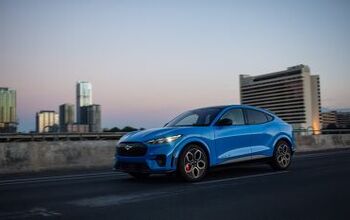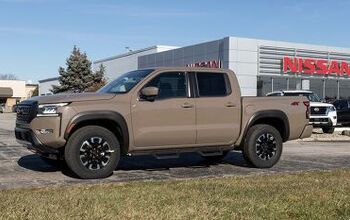U.S. Transportation Department Seeks $4B For Future Autonomous Cars

U.S. Department of Transportation Secretary Anthony Foxx on Thursday said his department would seek nearly $4 billion over the next 10 years to standardize rules for self-driving cars and make it easier for carmakers to offer more autonomous vehicles.
The plan was mentioned Tuesday by President Barack Obama during his final State of the Union address and detailed by Foxx at the North American International Auto Show in Detroit.
The plan would create a uniform autonomous vehicle policy for states to adopt and would allow more exemptions from current safety regulations for self-driving technology.
Only a few states currently allow autonomous vehicles on their roads, including California, Nevada and Michigan.
The plan, which will be included in the president’s budget proposal for 2017, requires congressional approval first and has initial approval from automakers including General Motors, which issued a statement Thursday supporting the measure:
We are pleased to support these important safety principles, and we applaud the efforts of Secretary Foxx, Administrator Rosekind, the Department of Transportation and NHTSA to lead this collaborative approach with the automakers to further enhance vehicle safety. … We welcome the opportunity to continue to work with experts in government and industry on the vital issues of automotive safety and cybersecurity.
“We are on the cusp of a new era in automotive technology with enormous potential to save lives, reduce greenhouse gas emissions, and transform mobility for the American people,” Foxx said in a statement. “Today’s actions and those we will pursue in the coming months will provide the foundation and the path forward for manufacturers, state officials, and consumers to use new technologies and achieve their full safety potential.”
Several states have competing laws or certification processes that prohibit some types of autonomous vehicle driving. For instance, California permits autonomous driving under certain circumstances, including maximum speed and with increased oversight on the manufacturer. Comparatively, Florida has very few rules regarding autonomous vehicle driving.
It’s unclear what role manufacturers will play in drafting the proposed legislation.

More by Aaron Cole
Latest Car Reviews
Read moreLatest Product Reviews
Read moreRecent Comments
- FreedMike I don't think they work very well, so yeah...I'm afraid of them.
- ChristianWimmer I have two problems with autonomous cars.One, I LOVE and ENJOY DRIVING. It’s a fun and pleasurable experience for me. I want to drive my cars, not be driven by them.Two, if autonomous cars have been engineered to a standard where they work 100% flawlessly and don’t cause accidents, then freedom-hating governments like the POS European Union or totally idiotic current German government can literally make laws which ban private car ownership in their quest to save the world from climate change bla bla bla…
- SCE to AUX Everything in me says 'no', but the price is tempting, and it's only 2 hours from me.I guess 123k miles in 18 years does qualify as 'low miles'.
- Dwford Will we ever actually have autonomous vehicles? Right now we have limited consumer grade systems that require constant human attention, or we have commercial grade systems that still rely on remote operators and teams of chase vehicles. Aside from Tesla's FSD, all these systems work only in certain cities or highway routes. A common problem still remains: the system's ability to see and react correctly to obstacles. Until that is solved, count me out. Yes, I could also react incorrectly, but at least the is me taking my fate into my own hands, instead of me screaming in terror as the autonomous vehicles rams me into a parked semi
- Sayahh I do not know how my car will respond to the trolley problem, but I will be held liable whatever it chooses to do or not do. When technology has reached Star Trek's Data's level of intelligence, I will trust it, so long as it has a moral/ethic/empathy chip/subroutine; I would not trust his brother Lore driving/controlling my car. Until then, I will drive it myself until I no longer can, at which time I will call a friend, a cab or a ride-share service.

































Comments
Join the conversation
Every time someone cuts me off in a parking lot, it's a 50 year old woman on her cell phone, driving one of these RX things.
The Feds are leaning towards a vehicle-to-infrastructure based system vs. the GPS/on-board sensors/precision maps system currently being developed by manufacturers. I think the biggest difference between two systems is the opportunity for graft: $400 million divided by 635 federal congressmen/women/transgendered = $7.5 million per. Even if each skimmed off only 10% in campaign contributions, there’s some real money to be made there. Campaign coffers don’t fill themselves.